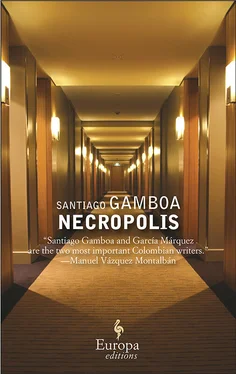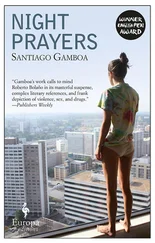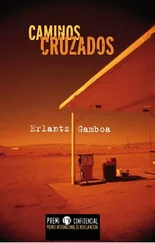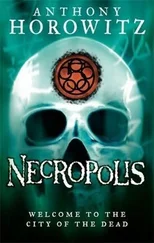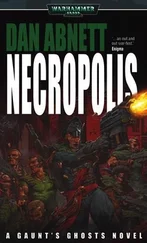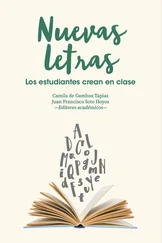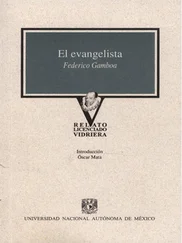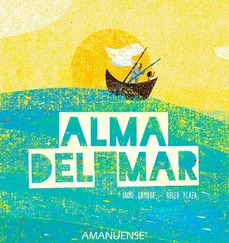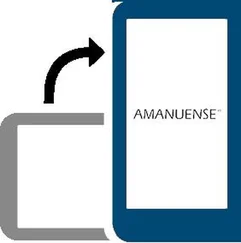Santiago Gamboa
Necropolis
To Analía and Alejandro in Jangpura
Surviving is, in the end, an act as praiseworthy as
searching for the truth until it wears us out.
— SÁNDOR MÁRAI
It’s not the history of countries but the lives of men.
— CHARLES BUKOWSKI
The letter inviting me to that strange conference, the International Conference on Biography and Memory (ICBM), arrived along with a whole lot of unimportant mail, which is why I left it on my desk, without opening it, for more than a week, until the cleaning woman, who sometimes takes it upon herself to tidy my things, said, what should I do with this letter? throw it in the wastepaper? It was only then that I had a good look at the stamp, the Hebrew writing, and the ICBM logo. I opened it, thinking it would be something unremarkable, but as soon as I started reading it I was hooked:
Dear writer, in view of your work, we have the pleasure of inviting you to the International Congress on Biography and Memory (ICBM), to be held in the city of Jerusalem from 18 to 25 May. If you accept, we would ask you to participate in a round table on a topic still to be decided, and to give a talk or lecture either on the vicissitudes of your work and the way you approach it, or on your life or the life of any another person worthy, in your opinion, of being retold. The costs of transport and accommodation, plus your expenses during your stay, will be met by the ICBM, and you will, in addition, receive a fee of 4,000 euros. Please reply to the above address, enclosing as complete a résumé as you see fit, as well as a photograph.
Yours sincerely,
Secretary General of the ICBM.
I was not only surprised but also, to tell the truth, flattered and euphoric. Questions came flooding into my head: who had given them my name? what kind of conference was this? what was my connection with the world of biography? I’ve written a number of novels and short stories, a travel book and thousands of pages of journalism, none of which, as far as I know, could be called biographical in nature; what made them think of me? how did they find my address? By the time evening fell, I was still wrestling with the same questions, and not finding any answers.
I should point out that this happened at a time when my life had slowed down completely. The hands of the clock kept turning, but that meant absolutely nothing to me. I would spend hours staring at a photograph in a newspaper, or at the cover of a book without opening it, aware of the emptiness and my own inner sounds, the beating of what Poe calls the “tell-tale heart,” the bloodstream, the tension of certain muscles. I had just recovered from a long illness that had separated me from the life I had lived until then, the life of a working writer moderately well known in the small world of letters. What happened was that my lungs had been invaded by a malignant virus, something called a hantavirus, which filled the alveolar sacs with liquid and flooded the capillaries, generating pools of virulent infection, infested with white cells. The illness condemned me to a long stay in hospital, until somebody decided to move me to a sanatorium in the mountains that specialized in respiratory and pneumological diseases, and there I was to remain for just over two years, far from all that had been mine but that, in the end, turned out to be nobody’s, since it all faded away the higher up the mountain I climbed (like Hans Castorp).
Illness creates a vacuum, and with time this becomes our only relationship with the world, a relationship that never seems to end. The patient walks along the edge of a crater where there may once have been a lake or even a city, and asks himself questions like, what happened here? why is it so deserted? where did everybody go? Then we are filled with a great stillness, and the past, all that we were before, dissolves like sugar in hot coffee. It is a very strange feeling, but quite a pleasant one, and I really mean that. Some time later, when the pools in my cells dried up and stopped secreting pus, I felt enormously weary. I had invested all my strength into getting well. During that time, I had read a lot, but stopped writing, since it is easier to do without things that do not yet exist, that have not yet taken shape. That was what I had learned in those years of stillness and silent observation.
As we are on the subject — and observing the strict laws of narrative — it might be useful at this point to say something more about myself. I have worked in public radio, especially on nighttime news shows; I have been a newspaper correspondent, written half a dozen novels that have had a modest success in a number of countries; I have taken courses in literary studies and, above all, I have read the classics, not very systematically, as well as my contemporaries, some of whom, of course, should be severely censured, but then it is well known that literature is a barren terrain to which anybody can stake a claim. As I myself did.
As for my private life, there is not much to say. I have been living in Europe for more than twenty years. Currently, I live in Rome, on Via Germanico in the Prati district, not far from the Tiber and Vatican City, in a comfortable apartment that is unfortunately also somewhat noisy, absorbing as it does both the sounds of the street and those from inside the building, which are varied in nature, from the snoring of an elderly alcoholic with cancer of the trachea and six bypasses to his credit, to the moaning of my young upstairs neighbor having sex with her boyfriend, which can be quite maddening, especially when you are trying to read the great Stoic philosopher Epictetus.
But let me get back to the letter.
The next day, at about eleven in the morning, I switched on my computer with the intention of answering the ICBM and accepting their invitation. But first, I went to the window and looked out: that old itch had come back, the itch to put off writing and do all kinds of little tasks that suddenly seemed urgent. Finally, though, I sat down and said, solemnly: the first letter I type will be the first in twenty-seven months, which one shall I start with? I pressed the x three times, by way of a trial, and then the l . I stretched my fingers then contracted them, rubbed my forearms, bounced up and down on the armchair to test the springs, and kicked off my slippers. I was ready. There was nothing to do now but write.
Dear friends of the ICBM, it is both an honor and a surprise to receive this invitation, which I hasten to accept. I await further details on the logistics of the conference and on whatever procedures need to be followed. In the meantime, I have a small request to make. Perhaps you could clarify for me how it is that such a prestigious institution heard of me and why it has been so gracious as to invite me to its conference, given that I have never written any book that was openly biographical in nature, even though I am a passionate reader of the genre. As that is my one question for the moment, I should like to thank you again, and I look forward to hearing from you at the earliest opportunity.
PS: résumé enclosed.
I went back to the window, to clear my head before rereading the letter, and looked out to see what was happening on Via degli Scipioni. That is one of my main occupations: looking down at the street and watching the people who pass, wondering who they are, what they are doing here, what has driven them to leave their homes, what keeps them going. A pizza delivery boy parked his motorbike near the corner, talking all the while on his cell phone. A girl student crossed the street, went into a building opposite, and slammed the door. At the far end, the owner of the convenience store stood out on the sidewalk, waiting for customers and giving instructions to his son, who was piling crates of mineral water. Things were slowly coming back to life, so I went back to my desk and reread the letter. Then I printed it, put it in an envelope, and walked three blocks to the post office.
Читать дальше
